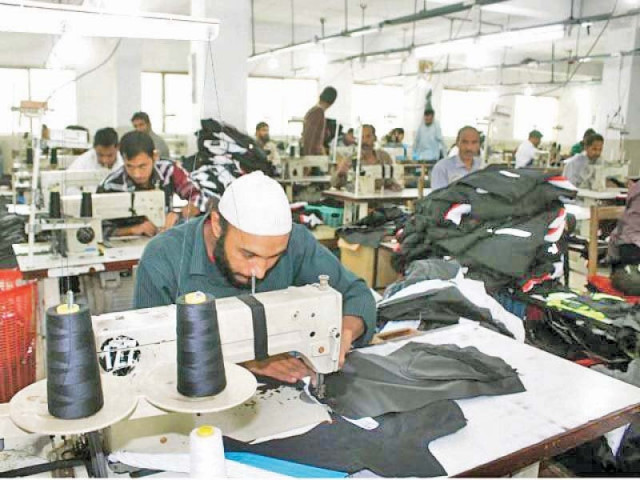LSMI growth down by 5.5% in November: PBS
Industrial closures will raise unemployment, create shortages

Growth in Pakistan’s large industries slumped by 5.5% in November, as businesses face extreme difficulties in procuring imported raw material coupled with the high cost of doing business, leading to temporary closure of many factories.
The severe curtailment of production is likely to cause high unemployment and create a shortage of essential commodities in the coming months, triggering a spike in inflation.
The Pakistan Bureau of Statistics (PBS) reported on Tuesday that growth in Large Scale Manufacturing Industries (LSMIs) decreased by 5.5% in November compared to a year ago. The national data collecting agency reported that the big industries also showed a 3.6% contraction during the July-November period, compared to the same period last year.
Since LSMIs contribute heavily to revenue collection and job creation, any change in their growth impacts the government and business sentiment accordingly. The Federal Board of Revenue (FBR) is also facing the daunting task of collecting revenues and has started slowing down the release of refunds – undermining business activities.
The decline in output is in line with the economic outlook of the country – already under the shadows of devastation caused by the floods and political uncertainty. The World Bank has maintained a 2% overall economic growth rate projection for the current fiscal year due to challenges posed by the floods and a severe shortage of foreign exchange. The government had set a 5% economic growth rate, which has become irrelevant due to the severe economic crisis prevailing in the country.
The central bank, commercial banks and federal government have all been trying to curb imports, aimed at saving foreign reserves. Last month, the central bank ended direct control over granting permission for imports and handed over a list of priority goods to commercial banks. Importers, however, claim that, in some cases, payments are not being made despite the Letters of Credit (LCs) from banks.
An industrialist, however, told The Express Tribune on Tuesday that, “My foreign supplier complained to me that my bank has breached the fundamental rule of international trade by taking documents without paying the money.”
He alleged that this new tactic has been applied on behest of the central bank to discourage imports. “This may permanently rupture the importer-exporter relationship, as no one will trust Pakistani importers in the future,” he said.
The coalition government has implemented recessionary policies which have started taking a toll on economic activities. Aside from paying salaries, government spending is focused primarily on two heads; debt servicing and defence.
Industries are also facing a high-cost of doing business due to an increase in interest rates and expensive raw material caused by the depreciation of the rupee against the dollar. The next monetary policy is also due and the industry is expecting an increase of 1% to 2% in the interest rate.
While this may not help significantly in containing the current account deficit or inflation, it will surely be a bonanza for commercial banks in the shape of high debt servicing. Nearly half of the federal budget, or Rs4.8 trillion, now goes into payments of interest on debt stocks.
The PBS stated that the sectors contributing 3.6% to the overall negative growth are food, tobacco, textile, garments, POL, cement, pharmaceuticals and automobiles.
Published in The Express Tribune, January 18th, 2023.
Like Business on Facebook, follow @TribuneBiz on Twitter to stay informed and join in the conversation.



















COMMENTS
Comments are moderated and generally will be posted if they are on-topic and not abusive.
For more information, please see our Comments FAQ